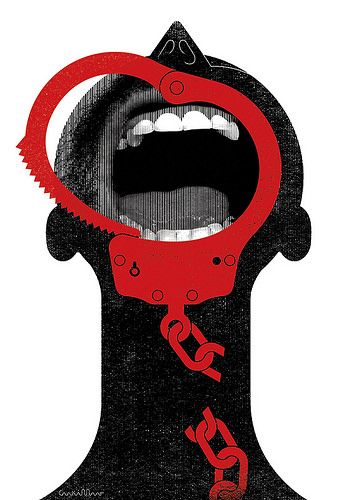Karuyev v. Russia, No. 4161/13, ECtHR (Third Section), 18 January 2022

The ECtHR dealt with freedom of expression in the context of political debate in the recent case Karuyev v. Russia. The domestic authorities had convicted the applicant for splitting on a photograph of President Putin. The act had been part of a political street performance held on the eve of Vladimir Putin’s inauguration following his election as President of Russia.
The applicant argued that the conviction was aimed at suppressing any criticism of President Putin’s method of governance. According to the applicant, Russian authorities were concerned with the object of his spitting, rather than with his public spitting per se, having referred to the picture in every decision as ‘as a portrait of the popularly elected President Putin’ (paragraph 15). By underscoring that the arrest for breach of public order did not take place during the performance, but four hours later, the applicant complained about the violation of his right to freedom of expression.
The Court found that the conviction constituted an interference not ‘prescribed by law’ under article 10, paragraph 2. Precisely, the Court described the performance as non-violent and peaceful, thus unlikely to cause any public disturbances or violence. In any case, domestic authorities did produce no evidence of the factual and legal basis for proving the applicant’s effective contribution to the alleged public disturbance (paragraphs 22-23). Considering the domestic provision on which the authorities had relied for the conviction, the Court held that the prosecution did not have a clear and foreseeable basis in domestic law. The Court therefore concluded that there had been a breach of article 10 for incompatibility of the interference with the lawfulness requirement. It did not deem it necessary to examine the other requirements under article 10, paragraph 2.
(Comment by Giovanna Gilleri)

